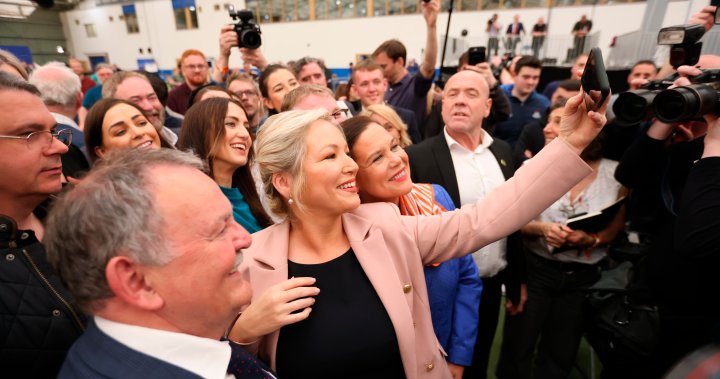
Northern Ireland power-sharing tussles spur calls for cooperation with Sinn Fein
Global News
Northern Ireland has a delicate power-sharing deal and politics around Brexit and Irish unity are raising questions about whether Sinn Fein can form government.
The U.K., U.S. and Irish governments have urged rival parties in Northern Ireland to come together to resurrect its power-sharing government after Irish nationalist party Sinn Fein scored a historic victory to become the biggest party in Northern Ireland’s Assembly.
Sinn Fein, which seeks union with Ireland, won 27 seats in the 90-seat legislature, beating the Democratic Unionist Party, which secured 25 seats.
It’s the first time in Northern Ireland’s history that an Irish nationalist party has topped the voting.
But it’s not clear whether Sinn Fein will lead a new government because of Northern Ireland’s delicate power-sharing politics and ongoing tussles over the legacy of Britain’s exit from the European Union.
While Sinn Fein’s vice-president Michelle O’Neill now has the right to the post of first minister, a functioning Northern Ireland Executive — or devolved government — cannot be formed unless the largest unionist party agrees to join in the role of deputy first minister.
In February the DUP’s Paul Givan quit as first minister in protest against post-Brexit border arrangements, collapsing the Executive. His party has said it will not return to government unless their demands over the customs arrangements are met.
Leaders in London and Dublin said all parties must now re-establish Northern Ireland’s government as soon as possible.
Irish prime minister Micheal Martin said late Saturday that “it is now incumbent on all political parties and elected representatives to deliver on their mandate.”













